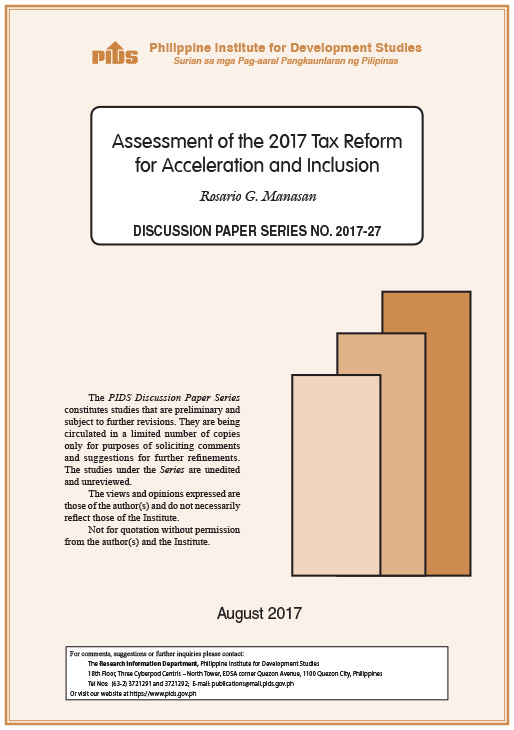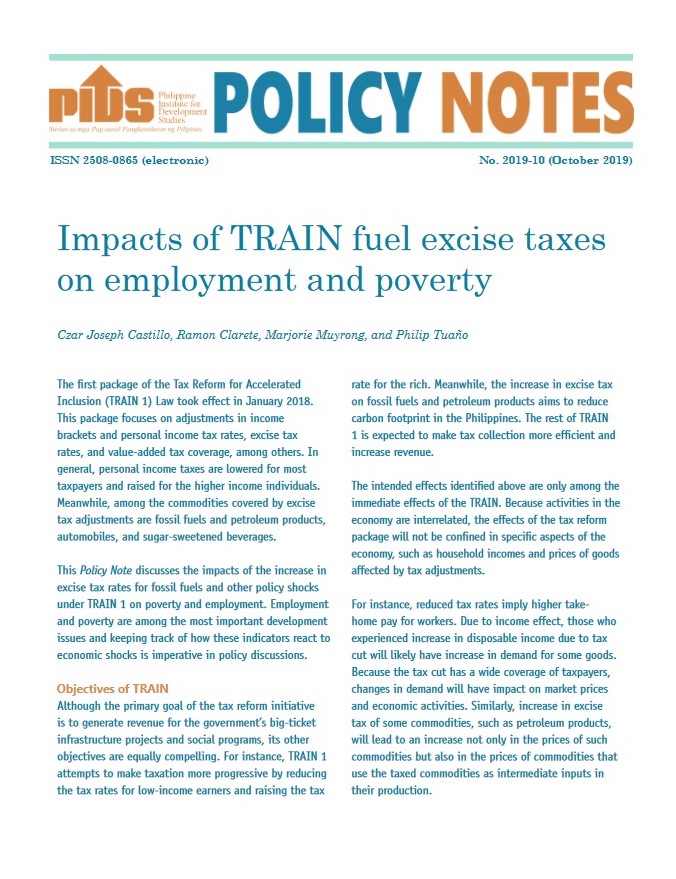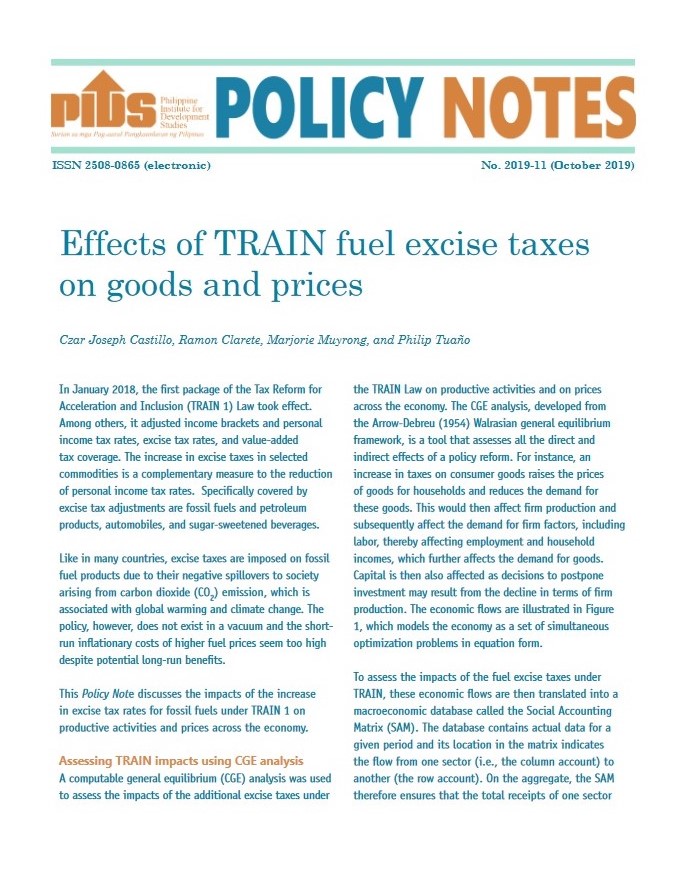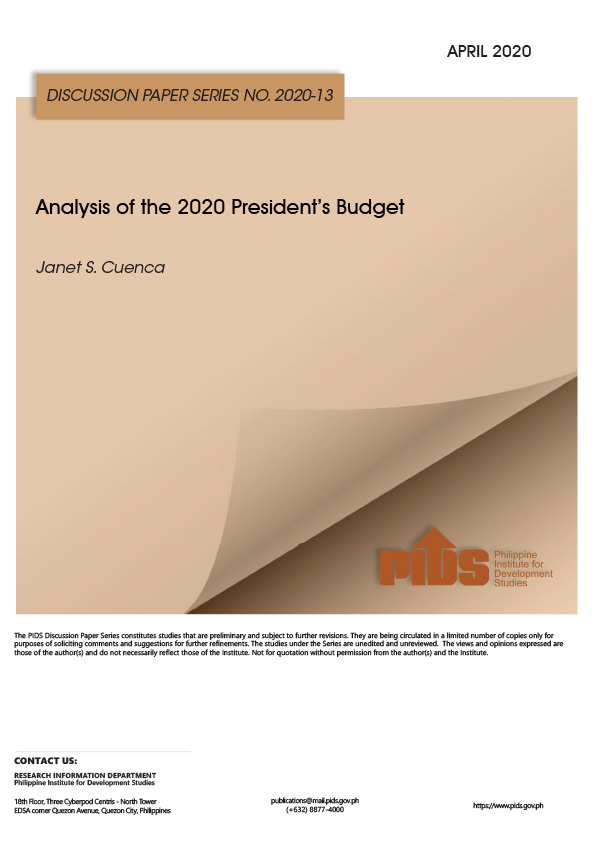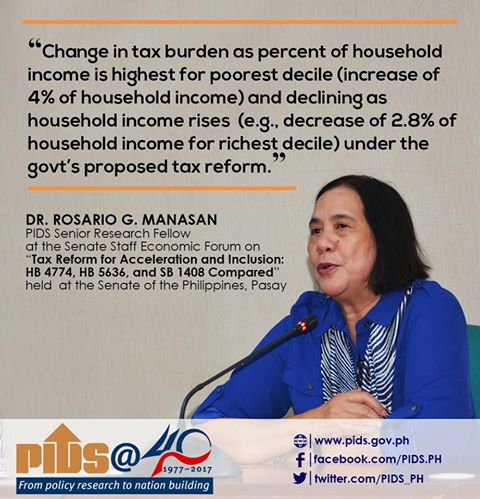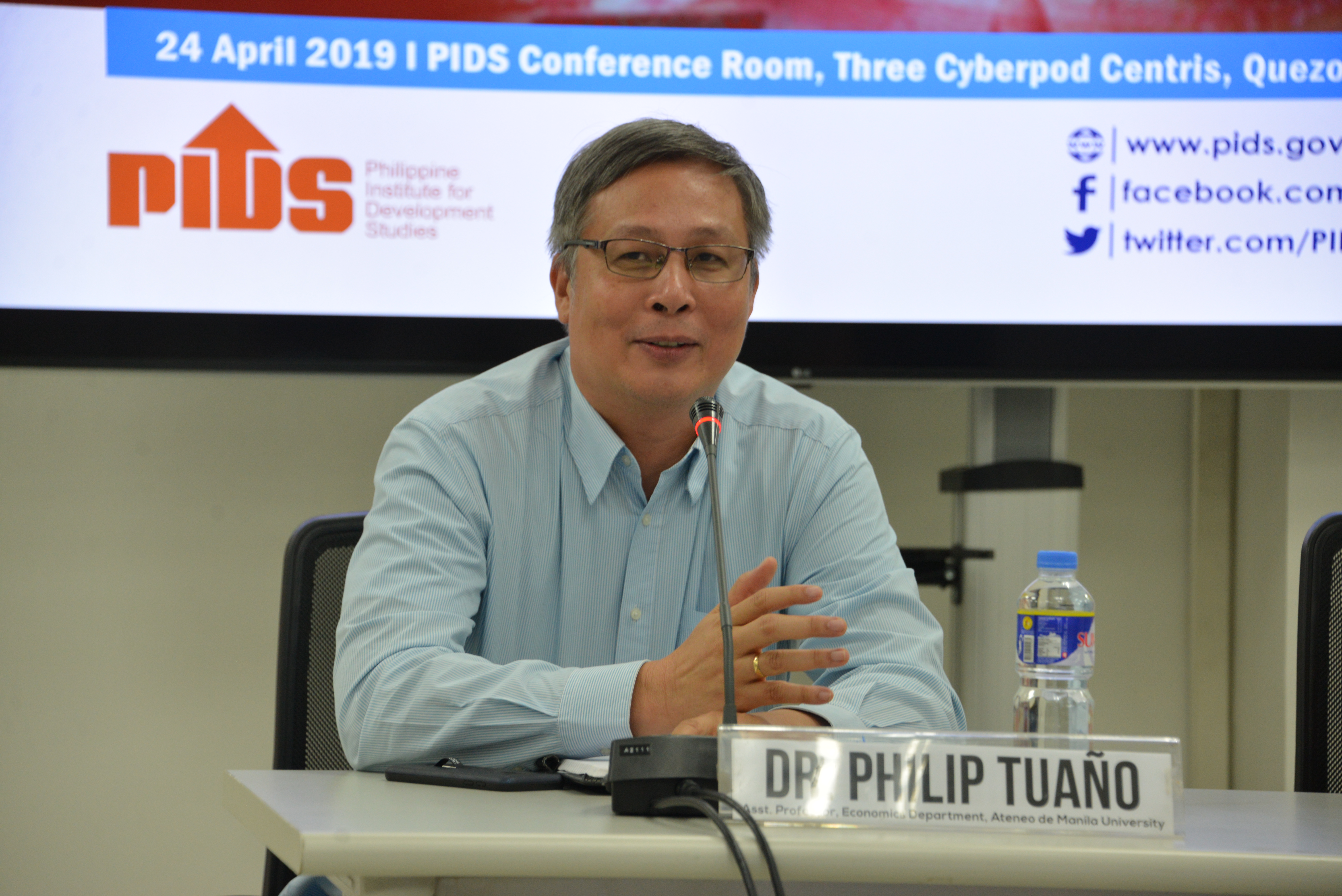Despite various reform efforts over the years, the tax system in the Philippines continues to suffer from chronic weaknesses. The Duterte administration is pursuing a simpler, more efficient, and more equitable tax system to support its economic growth strategy. The administration's Comprehensive Tax Reform Program was filed as House Bill (HB) No. 4774 in January 2017 at the lower house and Senate Bill (SB) No. 1408 at the Senate. These bills represent the first of several reform packages that will each focus on different areas of tax policy. The House of Representatives approved a compromise bill, HB 5636, titled "Tax Reform for Acceleration and Inclusion" or TRAIN in May 2017.
HB 4774, HB 5636, and SB 1408 seek to reform the structure of the personal income tax, value-added tax, and excise tax on petroleum products and automobiles, while improving the progressivity of the tax system. A portion of the additional revenues generated will be earmarked for investments in education, infrastructure, and health to stimulate long-term growth. This paper aims to assess the implications of these bills on the distribution of tax burden across income groups, economic incentives in affected sectors, national government revenues, and likely impact on tax compliance.
Citations
This publication has been cited 5 times
- BusinessMirror. 2017. No change in government revenue if indirect exports are levied VAT-study. BusinessMirror.
- Cahiles-Magkilat, Bernie. 2017. PIDS cautions against piecemeal tax measures. Manila Bulletin.
- Chanco, Boo. 2017. SEP’s get no benefit from tax reform. Philippine Star.
- Ordinario, Cai. 2017. PIDS study uncovers TRAIN’s weak spots. BusinessMirror.
- Philexport News and Features. 2017. VAT on indirect exports won’t alter revenue, says study. SunStar Cebu.

